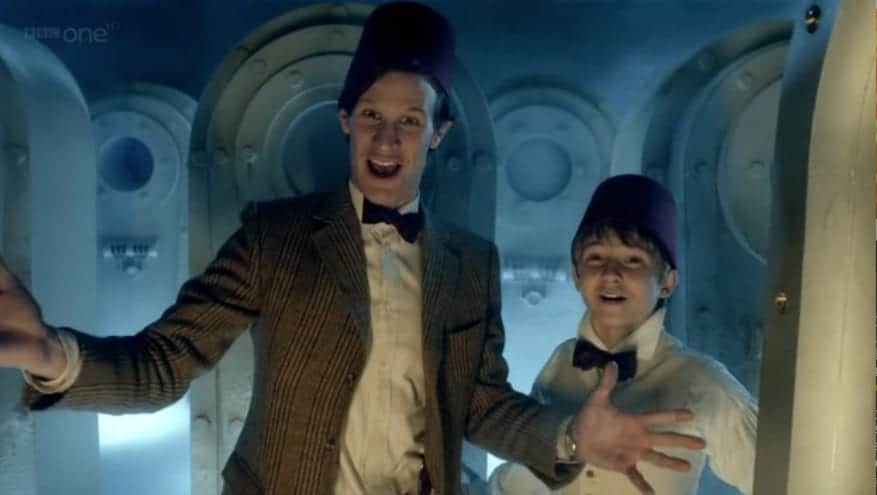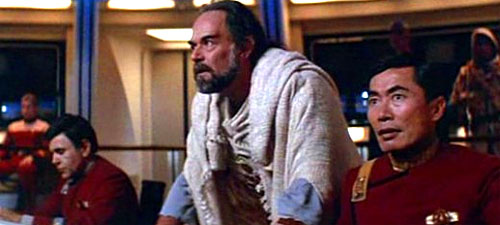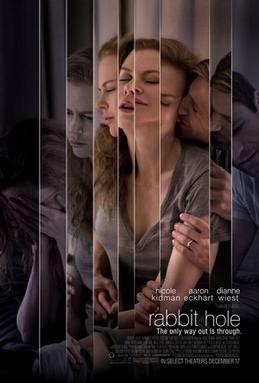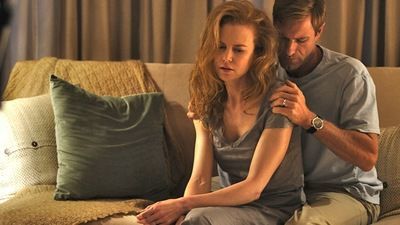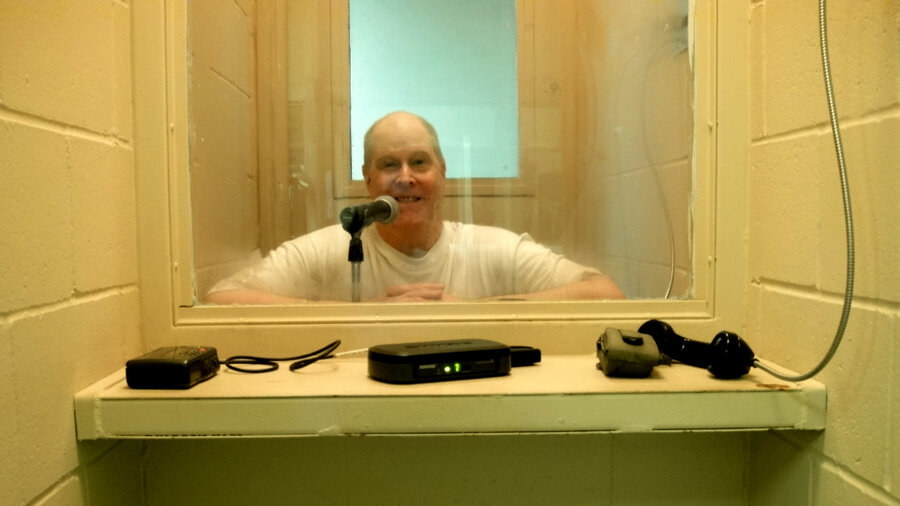THE LAST AIRBENDER
Even before the end of its opening weekend, The Last Airbender was becoming infamous for the sheer awfulness of everything involved in it. It has earned a reputation as being one of the worst films of 2010, and the worst in the increasingly irrelevant career of former and fading wunderkind M. Night Shyamalan: an incredible feat given The Village, Lady In the Water, and The Happening. Once touted as the next Steven Spielberg, he is fast becoming the next Ed Wood: a man with high ambitions but little to no talent, not resting but living off his laurels from The Sixth Sense and Signs.
I took a glance at YouTube to see the reaction of the hard-core fans of the animated series, and I was completely stunned at how much vitriol they unleashed on the live-action adaptation. They pounced on the absence of certain characters and especially on the pronunciation of their beloved character's names. The collective declaration of those who loved Avatar: The Last Airbender is unanimous: it would have been better to have thrown feces at them and forced them to eat it for the nearly two hours the film ran as opposed to having to watch the film again.
As the saying goes, I have no dog in this fight: I've never seen an episode of Avatar: The Last Airbender, so I cannot vouch for the fidelity to the series. To be sure, the video of the fans in total disbelief and barely contained fury are far more entertaining than the film itself. The live-action adaptation is mired by a grandiose, inflated and irrational sense of self-importance, truly awful line readings (I cannot in good conscience call it 'acting'), endless exposition and absolutely no sense of fun, joy, or whimsy.
As the saying goes, I have no dog in this fight: I've never seen an episode of Avatar: The Last Airbender, so I cannot vouch for the fidelity to the series. To be sure, the video of the fans in total disbelief and barely contained fury are far more entertaining than the film itself. The live-action adaptation is mired by a grandiose, inflated and irrational sense of self-importance, truly awful line readings (I cannot in good conscience call it 'acting'), endless exposition and absolutely no sense of fun, joy, or whimsy.
In a certain sense, I shouldn't have to go over what is suppose to be the plot, because someone in The Last Airbender will be more than happy to supply that information in the form of exposition dialogue of which there is an abundant supply. However, here is a brief overview.
In the world of The Last Airbender, there are four Nations: Earth, Fire, Air, and Water. The brother and sister team of Katara (Jackson Rathbone) and Sokka (Nicola Peltz), members of the Southern Water Nation (which I figure is in what corresponds to our South Pole), discover a boy buried deep within the ice in their home, along with a very large animal. They discover that the child, Aang (Noah Ringer), is the fabled Avatar, one who will bring balance to The Force, I mean, to the Elements. Aang, however, has been frozen in the ice for 100 years, and in that time the Fire Nation has waged a war of aggression and conquest. Therefore, when the exiled Fire Nation Prince Zuko (Dev Patel) and his loyal Uncle Iroh (Shaun Toub) learns the fabled Avatar is alive, he begins a quest to re-take him prisoner as a way to get back in the good graces of his father, Fire Lord Ozai (Cliff Curtis).
In the world of The Last Airbender, there are four Nations: Earth, Fire, Air, and Water. The brother and sister team of Katara (Jackson Rathbone) and Sokka (Nicola Peltz), members of the Southern Water Nation (which I figure is in what corresponds to our South Pole), discover a boy buried deep within the ice in their home, along with a very large animal. They discover that the child, Aang (Noah Ringer), is the fabled Avatar, one who will bring balance to The Force, I mean, to the Elements. Aang, however, has been frozen in the ice for 100 years, and in that time the Fire Nation has waged a war of aggression and conquest. Therefore, when the exiled Fire Nation Prince Zuko (Dev Patel) and his loyal Uncle Iroh (Shaun Toub) learns the fabled Avatar is alive, he begins a quest to re-take him prisoner as a way to get back in the good graces of his father, Fire Lord Ozai (Cliff Curtis).
The Avatar is a bit useless because he ran away from his Temple before being trained to 'bend' or manipulate all four elements. We discover all Air Nomads have been exterminated, all save him (hence, the last airbender). Now, Aang, Katara, and Sokka go to the Northern Water Kingdom (which I figure is the North Pole) on Aang's flying bison to learn how to bend water (I figure Katara, who can manipulate water, wouldn't be a good teacher since she hasn't quite got the hang of it herself). Zuko, as well as a second group of Fire Nation troops headed by Commander Zhao (Aasif Mandvi) head there to capture him (though not kill him since he would only be reincarnated...I figure a more kick-ass version of the Dalai Lama). There, an epic battle begins, but it is only the first part, for in three years time, we are told, the Fire Nation will be ready to challenge the Avatar again.
If anything positive can be said about The Last Airbender, it is the fact that writer/producer/director Shyamalan may be the first filmmaker to signal he planned to make more Last Airbender films in both the beginning and the end of his movie. The film near the beginning has "Book One: Water" appear on the screen, and we end with the shot of what appears to be a villainous Fire Princess about to begin her mission. Again, not having seen Avatar: The Last Airbender (the film had to drop the 'Avatar' from the title lest the public think it was a sequel to the James Cameron film) I thought that The Last Airbender itself was going to consist of four parts: Water, Air, Earth, and Fire, but it wasn't until the film ended that I realized we hadn't gotten any other parts.
Water was the only element to this story, and if there was a thought to have the other elements have their own film in the hoped-for franchise, the spectacular failure both commercially and critically of The Last Airbender makes such thoughts foolish dreams. If anyone attempts to make a sequel to The Last Airbender, it will be proof positive that Hollywood is run by thoroughly crazy people totally divorced from reality or reason.
Water was the only element to this story, and if there was a thought to have the other elements have their own film in the hoped-for franchise, the spectacular failure both commercially and critically of The Last Airbender makes such thoughts foolish dreams. If anyone attempts to make a sequel to The Last Airbender, it will be proof positive that Hollywood is run by thoroughly crazy people totally divorced from reality or reason.
Where to start with examining the rotting corpse that is The Last Airbender. Let's go first with the actual story and script. In spite of its hour and forty-minute running time there is never enough time to have characters develop anything like back-stories or grow/change in a psychological or emotional manner. We don't ever get to know Katara or Sokka or Aang or Zuko as people, because we have to keep moving from one location to another to set up another fight sequence.
Shyamalan somehow believes he has found a novel way of compensating for the fact that we don't know anything about the characters at least if you come into the film cold: he simply has the characters speak all the information you need to know in the form of dialogue. Why didn't anyone else come up with such a unique storytelling method: dialogue as exposition! For someone who has made several films, Shyamalan apparently doesn't realize just how bizarre it sounds to have people tell us about what came before while trying to make it sound like normal speech.
Shyamalan somehow believes he has found a novel way of compensating for the fact that we don't know anything about the characters at least if you come into the film cold: he simply has the characters speak all the information you need to know in the form of dialogue. Why didn't anyone else come up with such a unique storytelling method: dialogue as exposition! For someone who has made several films, Shyamalan apparently doesn't realize just how bizarre it sounds to have people tell us about what came before while trying to make it sound like normal speech.
Take for example when Zhao and Iroh agree to meet aboard Iroh's ship. There, Zhao tells the crew as to the reason Prince Zuko has been banished. A more rational and logical writer would have realized such exposition would make no sense: wouldn't the troops in the Fire Nation already have known all of this? Unfortunately, Shyamalan repeats this storytelling method more than once, and The Last Airbender is rife with endless scenes which are really nothing more than excuses to tell us the background as to what is going on. If that weren't bad enough, we have Katara give us three or four voice-overs telling us either what has come before, what is going on now even though we can see it and even what will come in the future, such as when she tells us that Sokka and Northern Water Princess Yue (Seychelle Gabriel) will 'become good friends' although we already know they will fall in love). Shyamalan in short, simply doesn't trust his audience (even those well versed in Avatar: The Last Airbender) to either keep up with his screenplay or to understand what they are seeing.
Perhaps that could be forgiven; no, it can't be. However, Shyamalan makes this worse by showing us what we already know after we've been told. Take same 'Prince Zuko banished' story. So all right, we were told the whole story in the banquet scene aboard Zuko's ship. However, Shyamalan decided to show us the banishment some time later. Why not combine both to save time and not have to repeat ourselves? Somehow, that never occurred to him, because he does this again and again. Not only does that serve only to lengthen the story, but it eats up time that could have been better spent showing how Aang learned to bend water or develop other aspects in The Last Airbender that had to be rushed almost to not being there (such as the romance between Sokka and Yue, which never felt real since we never really saw them spend any time together).
Shyamalan also appeared to have lost any ability to direct his actors, for the performances bar none were either wildly over the top or thorougly lifeless. I can see how Sokka and Katara would be from the South Pole, since both of them appeared frozen and stiff in their performances. This may be the second time that Rathbone plays a dead person (we need remember he also plays Jasper in the equally dreadful Twilight films, excuse me, Twilight SAGA films), and the fact that he is dreadful in two film franchises should be a sign that Rathbone is not an actor no matter how generous the definition of the word has become.
Ringer's Aang is also lifeless and joyless, and few performances of the title character have been so dull and comical in the wrong way. When he is called upon to react with horror and pain at the discovery that his fellow Air Nomads have been killed en masse, the reaction from the viewer is not sadness but laughter at how awful he is. It could be hoped that Dev Patel will be able to find roles that will return him to Slumdog Millionaire territory than The Last Airbender. His Zuko has no real personality but comes off not as nothing more than a whiny kid with daddy issues: an Episode One Anakin Skywalker without the personality. As with everyone else in the film, his motives and whatever internal conflict he had either had to be told to us via exposition or was non-existence.
Ringer's Aang is also lifeless and joyless, and few performances of the title character have been so dull and comical in the wrong way. When he is called upon to react with horror and pain at the discovery that his fellow Air Nomads have been killed en masse, the reaction from the viewer is not sadness but laughter at how awful he is. It could be hoped that Dev Patel will be able to find roles that will return him to Slumdog Millionaire territory than The Last Airbender. His Zuko has no real personality but comes off not as nothing more than a whiny kid with daddy issues: an Episode One Anakin Skywalker without the personality. As with everyone else in the film, his motives and whatever internal conflict he had either had to be told to us via exposition or was non-existence.
As is my standard, I opted not to see The Last Airbender in 3-D, and frankly, I missed nothing. My views on 3-D are well-known (I HATE IT, I HATE IT, I HATE IT), and it didn't add anything to the story such as it was. The special effects were not amazing or overwhelming, but like a lot of the film, boring. In what is suppose to be the climatic battle between the Fire Nation and the Northern Water Nation, I was fighting to stay awake, for the reliance on slow motion and what appears to be fighting using Tai Chi methods made things more dull. This ability to induce sleep may explain why James Newton Howard's score was so loud, pompous, and overblown: it must have been an effort to keep the audience awake by blasting it away to full power.
Finally, let me address the pronunciation issue. I'm told by fans it is pronounced Aah-ng, so why Shyamalan and Company opted for Awe-ng. This irritated them to no end, and it is an illogical decision though one not noted by non-viewers. However, I will fault them as if they needed more things to be faulted for for never deciding whether it was Ah-vatar or Aah-vatar. In short, they could never decide to make the first A either a long or short vowel, and this inconsistency, while ultimately a minor issue, is endemic of how chaotic The Last Airbender as a whole is.
In short, everything involving The Last Airbender: acting, plot, directing, script, music, art direction, costumes, special effects, and I think even the catering, was a complete and totally unremitting disaster. The Last Airbender is so horrid that if it were shown at Guantanamo Bay, there would be no argument that we indeed were using torture.
No doubt Shyamalan will survive this epic and monstrous debacle. In any other industry, having a job performance rating go from 85% to 7% within ten years would have gotten you fired. Fortunately for him, he works in Hollywood, which is the only industry where having a consistently failing rate almost assures one of continued employment. As the quality of Shyamalan's films continues to come crashing down, people still give him millions upon millions of dollars to make his films with the hope they will make them profits. However, I run the risk of this going from a review to a personal reflection.
Shyamalan will make one or two more movies, but if his track record does not improve, he will be the first director to be Box Office Poison. No one, not even in Hollywood, is insane enough to want to make another film so despised by both the fans of the original and those who've never seen the cartoon. Therefore, this certainly will be The LAST Airbender.
Shyamalan will make one or two more movies, but if his track record does not improve, he will be the first director to be Box Office Poison. No one, not even in Hollywood, is insane enough to want to make another film so despised by both the fans of the original and those who've never seen the cartoon. Therefore, this certainly will be The LAST Airbender.













